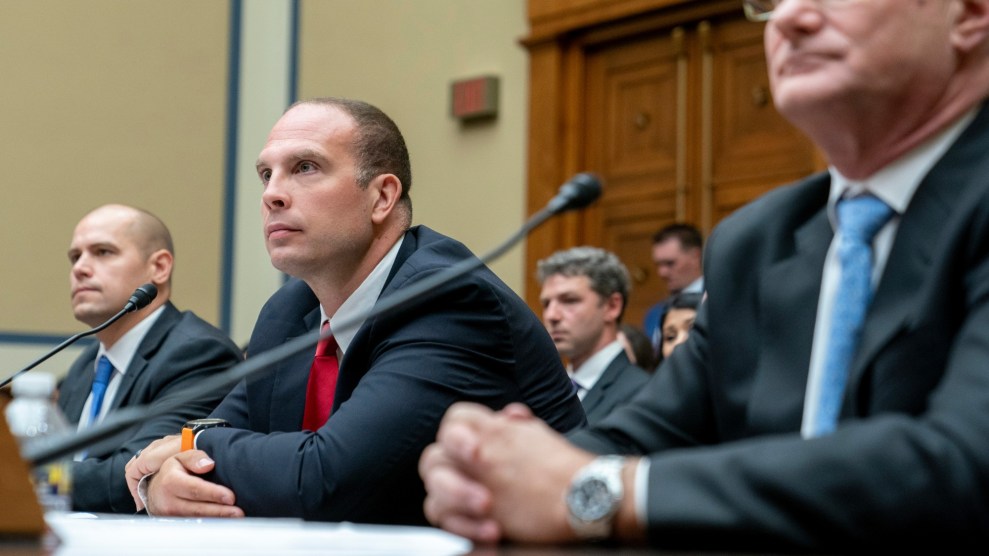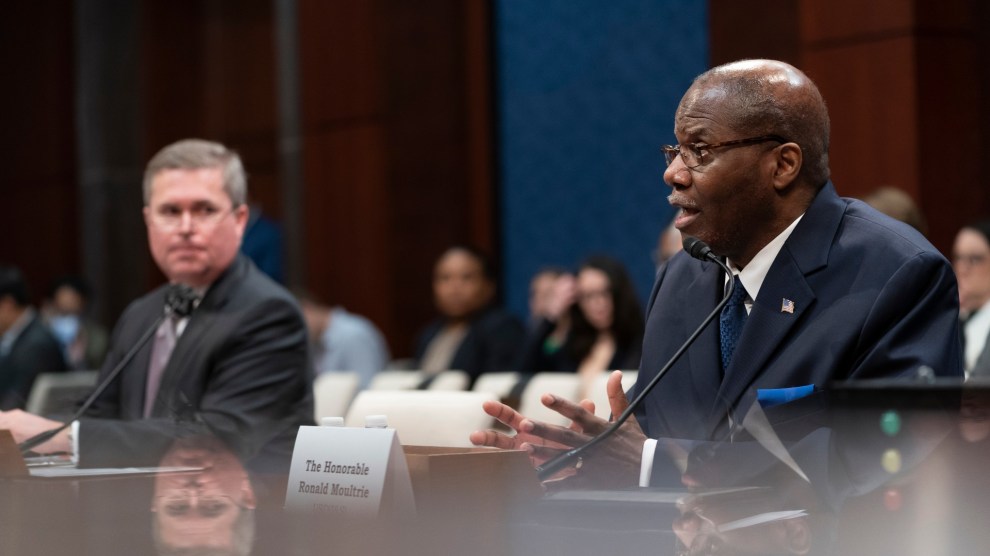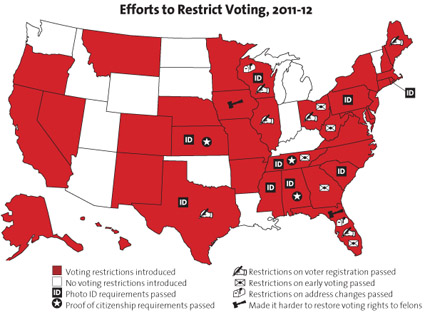
Former Navy pilot Ryan Graves, former intelligence official David Grusch, and retired Navy Commander David Fravor, testify before a House Oversight subcommittee hearing on UFOs.Nathan Howard/AP
On Wednesday, a House Oversight subcommittee held a highly anticipated hearing on “unidentified aerial phenomena” (UAP)—more commonly known to the public as UFOs. Though Rep. Tim Burchett (R-Tenn.) explained in his opening remarks that “we’re not bringing little green men or flying saucers into the hearing,” the hearing still got pretty…far out.
The subcommittee heard testimony from three witnesses: former Navy pilot Ryan Graves, retired Navy Commander David Fravor, and former Air Force intelligence officer David Grusch. Both Graves and Fravor claim to have had encounters with UAP, while Grusch has attracted widespread media attention for his controversial allegations that the Pentagon is hiding evidence of alien technology.
Graves testified that, in 2014, he and his squadron in Virginia Beach would regularly detect unknown objects via radar and corroborate their existence with infrared sensors. He described the UAP as “dark gray or black cubes” encased in clear spheres. Graves recounted a 2003 UAP sighting at a US air base by Boeing contractors who claim to have seen a football field–sized red square emerge from the ocean, approach the base, and hover for 45 seconds, before “darting away to the mountains.”
Fravor had a somewhat similar account. During a flight, he filmed a now-famous 2004 encounter off the California coast in which he says he saw a “Tic Tac”–shaped object over the water. (“Tic Tac, like the candy, not TikTok, the Chinese communist app,” Burchett later clarified.) Fravor said the object rapidly ascended as his aircraft approached it, then, like the cube, moved quickly away, traveling 60 miles east in a surprisingly short period of time.
Though Grusch never claimed to have seen a UAP in person, his testimony proved the most explosive. In response to questions about whether the government has successfully contacted extraterrestrials, he responded that he couldn’t disclose classified information in public settings. However, he did claim that material recovered from crashed UAP contained “biologics” that were “non-human.” Grusch also asserted that people have been physically threatened to keep information on UAP secret, but said he couldn’t answer a loaded question from Burchett about whether anyone has ever been murdered over the knowledge about these “non-human” entities. (Prior to the hearing, Grusch said he’d heard secondhand accounts of people being killed to maintain UAP secrecy, though he didn’t repeat that before Congress.) Grusch provided no hard evidence to back up his allegations.
Perhaps the best news from the proceedings is that one thing still unites the right and left: an insatiable curiosity about extraterrestrial life. In the hearing, which Rep. Robert Garcia (D-Calif.) called the “most bipartisan conversation” of his freshman term, committee members from both parties called for better UAP reporting systems for military and commercial pilots, and for curbing the government’s “over-classification” of information about UAP.
Will we ever really find out everything the government knows about these mysterious flying objects? The subcommittee may not have provided any answers on Wednesday, but at least it made for a riveting two hours of C-SPAN.













